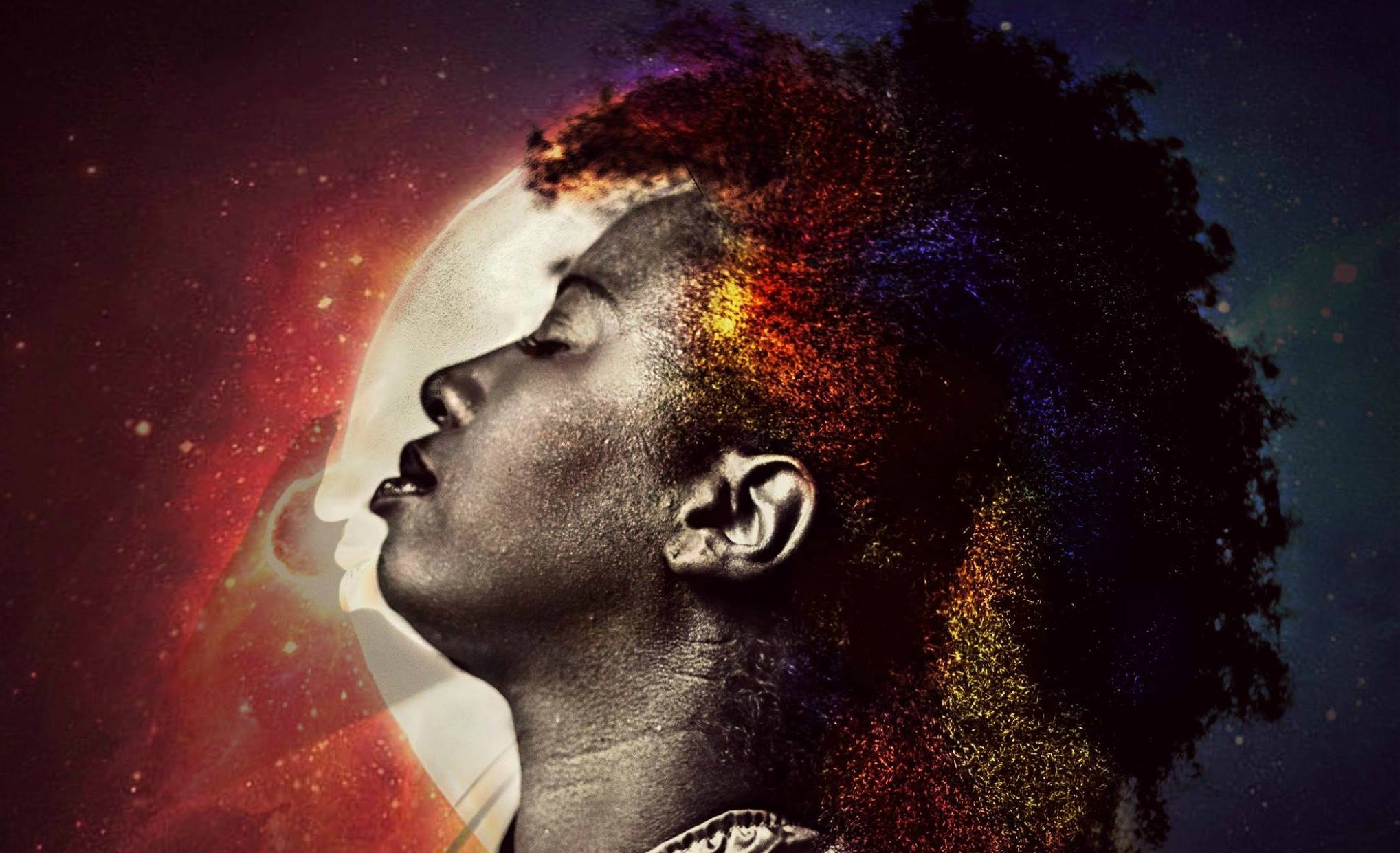The fierce protagonist in Dominique Morisseau’s brilliant play “Sunset Baby” was named after Nina Simone. She was able to turn “the madness that rages inside” into power, “and that’s what we wanted for you,” Nina’s estranged father tells her.
The fact that parents assumed their baby girl would inevitably be born into rage and need the gift and wherewithal to transform it speaks to the heart of this devastating play boldly produced by Face Off Theatre Company in Kalamazoo.
Nina is the product of her times as well as that of her parents. Born to black power activists personally destroyed in their own ways by the revolution, she hustles along with her boyfriend dealing drugs in New York. Her mother not long dead, Nina’s father appears in search of the letters her mother had written to him while he was imprisoned. The showdown between the adult abandoned child who’s learned to fend for herself in every way and the deadbeat father in search of redemption, though tragically limited in his ability to love, is epic.
It’s a gorgeous script full of powerful two-person scenes that transform language of the streets into the poetry it so often is. Director Marissa Harrington guides a hugely talented cast to make the most of both the highs and lows of the dialogue-driven action, all of which takes places in Nina’s run-down apartment, set simply by Ted McFarlen, and lit effectively by Samantha Snow. Harrington’s blocking and the way the actors use the space is organic and keeps the focus on the powerful tensions implicit in the play and the emphatic way the characters express language.
Jordan Mosely is an extraordinary Nina, gorgeous, seductive, rightfully mad as hell, utterly in command and yet fully conscious of her limitations and fears. She defies the emotional appeals of both her father and boyfriend, though she isn’t immune to their manipulations. “Ain’t nothing sentimental about a dead revolution,” she says flat footedly, and though she is in touch with her own desires — to sleep through the night for the first time in her life, for example — she also feels dead inside. “I am not alive in this chaos,” she cries.
Mosely’s performance is nuanced and passionate, and she plays beautifully with both Duane Shabazz as Damon, the boyfriend, and Buddy Hannah as Kenyatta, the father. Shabazz is a wonderful study in contrasts. He’s a “thug,” and yet his presence is both soft and sweet. The complex power play between him and Mosely is utterly convincing.
Hannah, too, is well cast in the complex role of the father, and though at times his scenes dragged opening night, he and Mosely build to dynamite climactic moments.
“Sunset Baby” opened Off Broadway in 2013, and its painful themes are perhaps more electric now than ever. In her curtain speech opening night, Director Harrington spoke of how apropos a play about revolution is at the start of 2018, and she shared a quote she said helped inspire the cast: “I am no longer accepting the things I cannot change. I am changing the things I cannot accept.”
This brave performance and play are indeed a call to action. While the subtext here is the devastating legacy of white supremacy, particularly on interpersonal relationships, the revolution required is ultimately a call to love. No sentimentality in sight.
Sunset Baby
Jan. 5-7
eventbrite.com





